Introduction
Biotin deficiency is a rare nutritional disease which can become serious when not properly treated. Vitamin B7 is available in several food sources. Intestinal fauna synthesizes fair amounts of this nutrient. Low circulating levels of the vitamin B7 occurs in certain specific health conditions. Biotin inadequacy can result in delayed development, respiratory problems, neuropsychological impairment, neuropathy, behavioral problems, dermatological manifestations, alopecia and reduced immune function.
What is Biotin and its role in humans?
- Biotin, also known as vitamin B7, like most Vitamin B, is a water soluble vitamin required by all living beings, except bacteria, yeast, fungi and molds that can make the vitamin on themselves. That means, bacteria living inside our intestines create biotin on their own and share the vitamin with the host organisms.
- Biotin helps in carbohydrate, fats and protein metabolism in the body and also assists in energy production in the body.
- Biotin or vitamin B7 helps in supporting adrenal function, helps in calming down and maintaining a healthy nervous system and also necessary for key metabolic processes of life.
Regular functions of Biotin
- Biotin is necessary for the body to convert food into glucose, which is used to produce energy. It is also used to produce fatty acids and amino acids (the building blocks of protein)
- One of biotin’s primary functions is to activate protein/amino acid metabolism in the hair roots and fingernail cells – biotin is the key ingredient in all Hair, Skin and Nails supplement formulas.
- Biotin also helps in production of glucose in the body and this is why it also has an effect on the amount of sugar present in the blood. Thus, biotin is known for maintaining a healthy level of blood sugar in the body.
Biotin or Vitamin B7 deficiency diseases
- Dermatological diseases caused by low levels of the vitamin biotin include seborrheic dermatitis, hair loss and also a characteristic scaly, erythematous dermatitis distributed around body orifices including the eyes, ears, nose, mouth, anus and genital area.
- Neuropsychological diseases include depression, lethargy, hallucination, behavioral problems, seizures and numbness and tingling of the extremities.
- Anorexia, dyspepsia, anemia, heart abnormalities, fungal infections, conjunctivitis and developmental delays are the other connected diseases.
History
The discovery of biotin has a similar history to that of many other vitamins in which no one single person can be accredited to its identification. The full function and structure of biotin, also known as Vitamin H or Vitamin B7, was not completely understood until the first few decades of the 1990s.
In 1901, a scientist discovered that yeast requires a special growth factor which he named “bios.” Over the next 30 years, bios proved to be a mixture of essential factors, one of which is biotin or vitamin B7. In 1916, W.G. Bateman became one of the first notable contributors to the discovery of biotin after finding toxic levels of the vitamin within an organism following the addition of excess raw egg white to a nutritionally adequate diet.
Finally, in 1931, German scientist Paul György specifically discovered biotin in the liver and called it vitamin H – the H represents “Hautund Haar,” German words for “skin and hair.” Biotin was isolated in 1935.
Epidemiology of Biotin Deficiency
Biotin deficiency can occur in any race
- Biotin deficiency occurs at an equal rate and frequency in both men and women
- Deficiency of biotin can occur at any age.
- As biotin is present in most of the foods, biotin deficiency is very rare. However, it occurs in locations where there is an increased rate of malnutrition.
- Pregnant women however have greater chance to meet with biotin deficiency; as pregnancy alters the biotin catabolism. So, irrespective of biotin intake, about half of the pregnant women in the United States are known to be biotin deficient.
Biotin deficiency causes
The primary dietary insufficiency of the biotin is very rare. The secondary inadequacy arises in to several situations.
- Severe malnutrition due to poverty, ketogenic diet or eating foods very low in the vitamin may cause low levels of the vitamin B7 in the plasma.
- Regular consumption of raw egg whites can cause binding of vitamin B7 to avidin present in the egg-white rendering it unabsorbable.
- Prolonged total parenteral nutrition without supplementation of vitamin B7 can lead to low biotin blood levels.
- Some anticonvulsants (except valproic acid) inhibit vitamin B7 transport across the intestinal mucosa as well as catabolize the vitamin, rendering it unavailable for its important functions.
- Prolonged oral antibiotic use eliminates and alters the biotin-synthesizing bacteria in the gut.
- Smoking, especially in women, leads to low blood levels of the vitamin B7 due to increased catabolism.
- Alcoholism and related malnutrition may cause dietary inadequacy and/or poor absorption of micronutrients.
- Pregnancy and lactation increases the demand for the vitamin in the body, sometimes causing reduced biotin plasma levels.
- Malabsorption diseases including, short bowel syndrome, coeliac disease, Crohn’s disease, cystic fibrosis, chronic diarrhea, multiple food allergy and ulcerative colitis can cause deficiency of biotin in the body.
- Burn patients, epileptics, elderly individuals, people suffering from chronic diseases and athletes are prone to develop biotin inadequacy.
- Certain inherited genetic mutations cause metabolic impairments in activities of biotin-dependent carboxylases leading to several severe symptoms in children.
Risk factors of biotin deficiency
Anyone can develop a biotin deficiency. Several conditions and disorders increase the risk for some people. These include:
People with biotinidase deficiency
This rare hereditary disorder prevents the body from reusing biotin. People with the disorder are more likely to be biotin deficient.
Pregnant women
Biotin is critical for pregnant women. Without it, the baby could develop certain birth defects. Some blood tests for expecting moms will measure biotin levels. While you’re pregnant, your doctor may encourage you to eat more biotin-rich foods. This can help protect the growing baby.
People using certain medications
Antibiotics can destroy the healthy bacteria in your intestines. These bacteria can produce biotin naturally. Without them, you may become deficient. Anti-seizure medicines can also prevent vitamin absorption. If you’ll be using these medicines for a long period of time, you may need a supplement.
People using IV feeding
IV nutrition or tube feeding may lower how much biotin you can absorb. People using these forms of nutrition may need a biotin supplement until they’re able to eat solid food again.
Physical Symptoms of Biotin Deficiency: It’s Impact on Skin and Hair
Physical symptoms of biotin deficiency start appearing in the skin and hair at first.
- There is a dry skin and is often associated with Seborrheic dermatitis.
- Fungal infections are noticed.
- Dry and brittle nails due to biotin deficiency
- Rashes, including erythematous periorofacial macular rash and skin lesions appear.
- Hair loss or total alopecia is one of the physical symptoms of biotin deficiency.
- Fine and brittle hair are common symptoms of biotin deficiency
Hearing Loss Symptoms of Biotin Deficiency:
- Biotin deficiency may develop sensorineural hearing loss.
- Hearing loss may either be mild, moderate or severe.
Neurologic Symptoms of Biotin Deficiency: Associated with Central and Peripheral Nervous System:
- Mild depression and may eventually progress to somnolence.
- Generalized muscular pains or myalgias may be noticed.
- Changes in mental status.
- Hyperesthesias and paraesthesias are common.
- Biotin responsive seizures are seen in biotin deficient people.
Intestinal Tract Disorder Symptoms of Biotin Deficiency:
- Nausea can be a symptom of biotin deficiency. Occasionally nausea can become severe.
- Vomiting is one intestinal symptom in biotin deficiency.
- Anorexia is occasionally found in biotin deficient people.
Diagnosis and Tests
The following tests are rarely needed because the diagnosis of biotin deficiency is primarily based on clinical findings. However, in cases with confusing findings, laboratory studies of the following may be useful:
- Serum ammonia levels
- Urine ketones levels
- Quantitative plasma amino acid levels
- Plasma carnitine levels, both free and total (sometimes termed free and esterified)
- Routine serum chemistry panel
Treatment
- The most important aspects of the medical care in patients with biotin deficiency include the early recognition of the condition and the prompt institution of therapy with adequate amounts of biotin.
- The dosage of biotin that should be administered is debated. Some authorities suggest a daily intramuscular injection of 150 µg of biotin.
- At this dose, symptoms of biotin deficiency begin to resolve within 3-5 days and are essentially absent within 3-5 months.
- Supplemental biotin tablets provide the extra biotin the body needs if it’s having trouble making its own. Those consuming raw eggs whites should stop immediately, supplement with biotin or a good B-complex vitamin, and the symptoms should go away on their own.
- Biotin shampoos and oils can be used for hair fall and brittle nail treatment.
- For those taking oral antibiotic medications, talk to your doctor about discontinuing them and supplement your diet with biotin as well as probiotics, which resupply the intestines with beneficial bacteria. As you nurture the good bacteria in the gut, they will produce biotin again.
- Anticonvulsant medicines interfering with biotin production may be changed to different medicines without this side effect. Only your doctor can change your prescription and tell you if such medicines are appropriate for your condition.
The Institute of Medicine has set an adequate intake (AI) for biotin. Getting this amount from diet, with or without supplements, should be enough to support good health.
| Category | Biotin: Adequate Intake (AI) |
| 0-6 months | 5 micrograms/day |
| 7-12 months | 6 mcg/day |
| 1-3 years | 8 mcg/day |
| 4-8 years | 12 mcg/day |
| 9-13 years | 20 mcg/day |
| 14-18 years | 25 mcg/day |
| 19 years and up | 30 mcg/day |
| Pregnant women | 30 mcg/day |
| Breastfeeding women | 35 mcg/day |
Home remedies to cure biotin deficiency
You can cure vitamin deficiency in general, and B7 deficiency in particular, through a good diet that includes foods rich in biotin:
Seafood and Meat
Some kinds of animal meat and fish are good sources of biotin. Three ounces of cooked liver contains 27 micro milligrams of biotin, making it an excellent food supply of this nutrient. Saltwater fish, such as salmon and sardines, are low in fat and ensure enough biotin as well as other proteins. Meats like red meat, pork, turkey and beef contain large amounts of biotin.
Whole Wheat Bread:
A slice of whole wheat bread contains one to six micrograms of biotin. The vitamin in found in the bran of the wheat and thus white bread has less biotin content as compared. Moreover, yeast in the bread, particularly brewer’s yeast is another significant source of biotin.
Eggs
Egg yolk is another excellent biotin rich food. However, too much egg white can actually be a catalyst for a biotin deficiency as eggs contain a specific element that binds biotin to a protein called avidun, reducing the ability to equally distribute the nutrient.
Dairy Products
In addition to calcium and other healthy nutrition, dairy products like milk, buttermilk, yoghurt, cottage cheese and cheese are also a rich source of biotin for the body.
Soya Bean
A 10-gram serving of soybean contains 60 mg of biotin. One of the best foods rich in biotin.
Vegetables
Vegetables like onions, cucumbers, cabbage and cauliflower contain biotin and are healthy ways to fit this vitamin into your daily diet.
Fruits
A regular intake of fresh and dry foods ensures ample amount of iron and biotin in the body. Avocado is the richest fruit source of biotin and must be consumed regularly.
Nuts
A variety of nuts like almonds, peanuts, hazelnuts, cashew nuts, pecans and walnuts provide the body with biotin.
Berries
Some berries like strawberries, cranberries and raspberries can ensure a significant amount of biotin to the body. In addition to biotin, they also provide ample antioxidants and other health benefits.
Beverages
Beverages like black tea, coffee, wine and beer also contain biotin in them. However, they should not be consumed in large quantities as they contain caffeine which can have adverse effects on the body.
Sunflower Seeds
Sunflower seeds contain biotin, iron, calcium, potassium, vitamin E, magnesium and vitamin B in them and should be included in the daily diet.
Prevention and control
Patients with biotin deficiencies can overcome the condition by embracing several measures. Adults and Infants that face the risk of suffering from biotin deficiency can prevent it through:
- Cessation of smoking and intake of alcohol
- Ingestion of diets that have been shown to be rich in biotin
- Parenteral and intravenous administration of biotin and biotin supplements
- Genetic mutation analysis to establish susceptibility to biotin deficiency
- Administration of biotin supplements to pregnant women
- Regulated use of anticonvulsants during therapy
- Intake of protein supplements to support the biosynthesis of the biotin transporters
 Diseases Treatments Dictionary This is complete solution to read all diseases treatments Which covers Prevention, Causes, Symptoms, Medical Terms, Drugs, Prescription, Natural Remedies with cures and Treatments. Most of the common diseases were listed in names, split with categories.
Diseases Treatments Dictionary This is complete solution to read all diseases treatments Which covers Prevention, Causes, Symptoms, Medical Terms, Drugs, Prescription, Natural Remedies with cures and Treatments. Most of the common diseases were listed in names, split with categories.
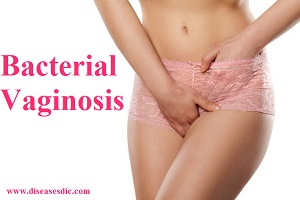
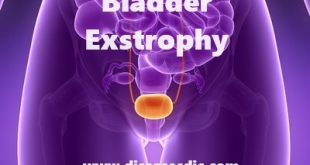

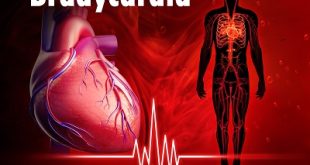
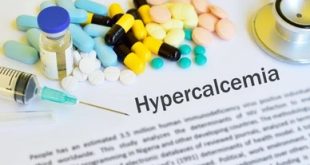
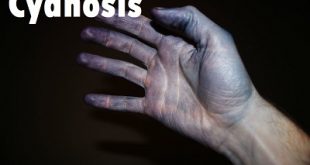

is prolonged biotin deficiency leads any other harmful health affects..in old age people more than 40 yr
Prolonged biotin scarcity leads to loss of body metabolism which results in complete hair loss or balding, fungus infection of nail, muscle pain and loss of skin tone.
is there any common disease in this deficiency ..lyk other nutritional inabsorbance..or it depressed any other nutrients
The major effects associated with biotin deficiency is Hair loss or total alopecia, Seborrheic dermatitis and myalgias. There are no studies which are showing other nutrient depression during the onset of biotin deficiency.
what are the side effect of too much biotin in the body?
Too much biotin in the system can cause cystic acne on the chin and jaw line.
This vitamin increases sebum production in the skin, making way for ruptures and dirt accumulation. But it has been noted that acne fades away a few weeks after the biotin dosage is stopped.
It is better to take less than 2500 mcg or less of supplement each day.
how to. check biotin deficiency
Biotin Deficiency can be diagnosed by testing for biotinidase activity in the blood.